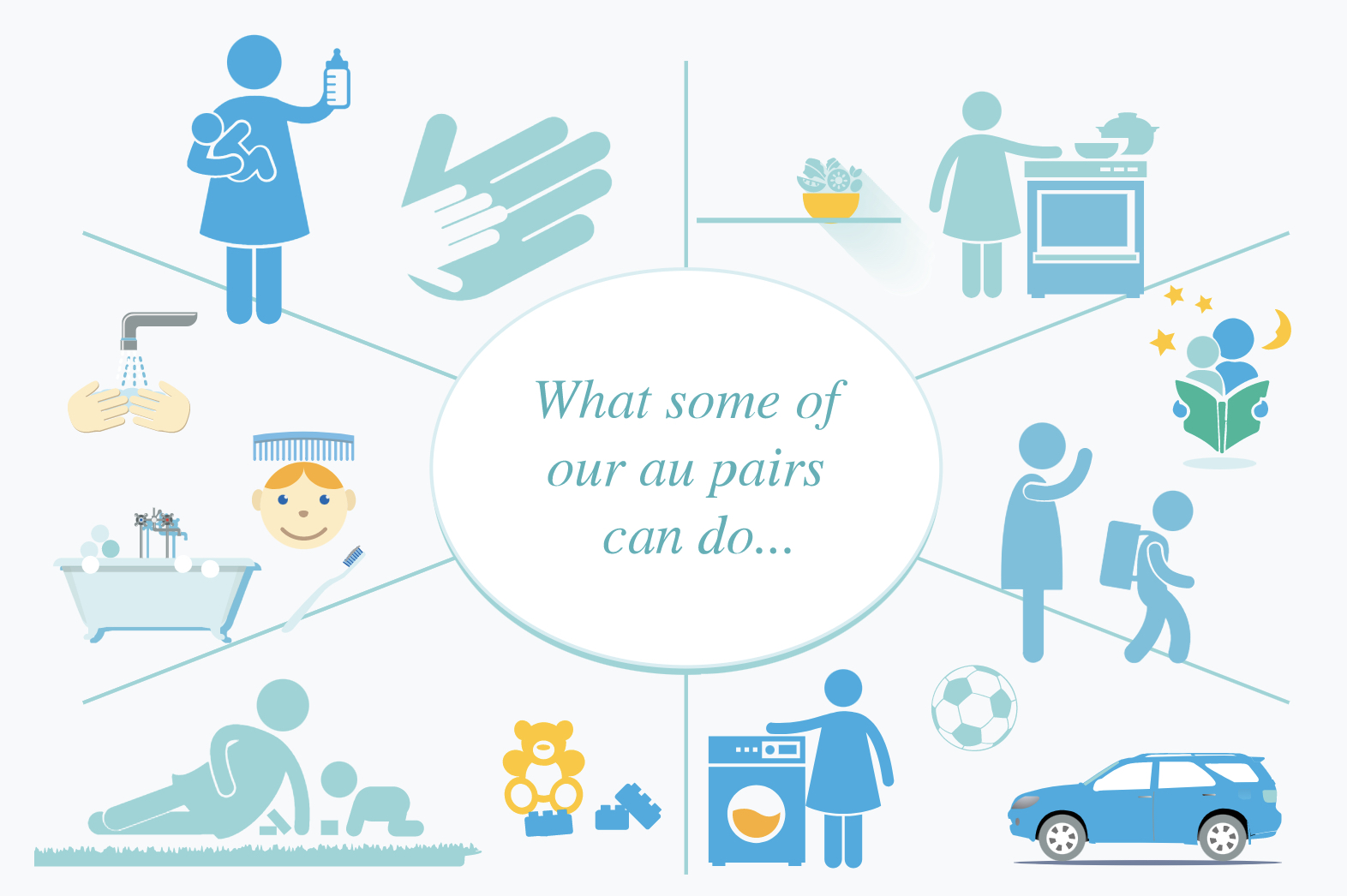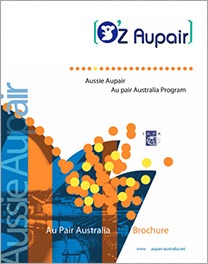Exploring the Role and Responsibilities of Au Pairs

Welcoming an au pair into your family allows a unique cultural exchange while receiving help with child care, allowing you and your children to enjoy a more stress-free lifestyle. There’s no need to hurry off to daycare when the caregiver is conveniently just down the hallway.
However, comprehending the duties associated with having an au pair can be somewhat unclear. We aim to provide a clear answer to the question: “What are the responsibilities and tasks of an au pair?”
Au pairs have become an increasingly popular choice for families seeking flexible and culturally enriching childcare options. These young individuals, often from different countries, provide a unique blend of childcare and cultural exchange, offering families the opportunity to invite a new cultural perspective into their homes. In this article, we will delve into the role and responsibilities of au pairs, shedding light on the valuable contributions they make to the lives of both children and families.
* Caring for the children by waking them up,
* Dressing them,
* Bathing them, and playing with them.
* Additionally, preparing meals, managing their belongings, making beds, and tidying their rooms.
* Taking care of their laundry, cleaning the kitchen after meals, and organizing the playroom after playtime.
* Providing transportation to school, appointments, or outings as needed.
* Staying with the children when they are sick or during holidays
Understanding the Role of an Au Pair:
An au pair is a young person, typically between the ages of 18 and 30, who travels to a foreign country to live with a host family and assist with childcare duties. The term “au pair” is derived from the French phrase meaning “equal to” or “on par with.” This reflects the idea that au pairs are considered temporary family members who share in the daily tasks of raising children.
The responsibilities of an au pair are diverse and may vary to some extent depending on the specific needs of a family. Here are some typical duties that can be found in an au pair’s job description:
Childcare Responsibilities:
The primary responsibility of an au pair is to provide childcare support to the host family. This can involve tasks such as supervising children, engaging them in educational and recreational activities, preparing meals, and helping with bedtime routines. While the specific duties may vary from family to family, au pairs generally work a set number of hours per week, which allows them time for personal pursuits and exploration of their host country. This includes tasks such as:
* Supervising and engaging with children: Au pairs spend their time actively interacting with the children in their care, playing games, assisting with homework, and organizing recreational activities.
* Meal preparation: Au pairs often help with meal planning and preparation for the children, ensuring they have nutritious and balanced meals throughout the day.
* School drop-offs and pickups: Au pairs in Australia may be responsible for transporting children to and from school or extracurricular activities, ensuring their safe arrival and departure.
* Assisting with bedtime routines: Au pairs help establish consistent bedtime routines, ensuring that children adhere to appropriate sleeping schedules.
Household Responsibilities:
While the main focus of an au pair is childcare, they also contribute to the smooth running of the household.
In addition to childcare, au pairs may be asked to assist with light household chores related to the children, such as tidying up play areas, doing laundry, and preparing their meals. It’s important to note that au pairs are not expected to take on the full responsibilities of a professional nanny or housekeeper. Instead, they offer flexible and personalized support that aligns with their skills and experience.
Common household responsibilities may include:
* Light housekeeping: Au pairs assist with light housekeeping tasks such as tidying up children’s play areas, doing laundry, and maintaining a clean and organized environment.
* Grocery shopping: Depending on the agreement with the host family, au pairs may be responsible for grocery shopping and meal planning, ensuring that the family has the necessary supplies.
* Language and cultural exchange: One of the unique aspects of hosting an au pair is the opportunity for language and cultural exchange. Au pairs can help children learn a new language, introduce them to their native culture, and share their customs and traditions.
Working Hours and Time Off:
Au pairs in Australia typically work a set number of hours per week, which is determined through an agreement with the host family. The number of working hours can vary, but it is important to establish clear guidelines and expectations to maintain a healthy work-life balance for both parties. Additionally, au pairs are entitled to a certain amount of time off each week and should have opportunities to explore their host country, attend language classes, and engage in cultural activities.
Cultural Exchange and Language Learning
One of the most significant benefits of being an au pair in Australia is the opportunity for cultural exchange. Au pairs immerse themselves in the local way of life, gaining insights into Australian customs, traditions, and language. Living with a host family enables them to experience the day-to-day routines and traditions unique to the country, fostering a deeper appreciation and understanding of Australian culture.
Moreover, au pairs often have the chance to share their own cultural background with their host family, introducing new customs, recipes, and languages to the household. This intercultural exchange enriches the lives of both the au pair and the host family, creating lasting connections and memories.
Personal Growth and Development
Beyond the childcare aspect, being an au pair in Australia offers personal growth and development opportunities. It is a transformative experience that allows young individuals to become more independent, adaptable, and self-reliant. Living in a foreign country and navigating the challenges of a new culture helps au pairs develop valuable life skills, such as problem-solving, communication, and cross-cultural understanding.
Furthermore, au pairs often form lifelong friendships with their host families, fellow au pairs, and people they meet in their new community. These connections contribute to personal growth and expand their global network, opening doors to future opportunities and enhancing their overall life experiences.
Conclusion:
Au pairs play a vital role in providing flexible and culturally immersive childcare experiences for families. Their contributions extend beyond childcare duties, as they bring a new perspective and cultural exchange into the lives of the host family and children. By understanding the responsibilities and expectations of au pairs, families can create a harmonious environment that benefits both the children and the young individuals embarking on this unique cultural adventure.
Au pairing in Australia presents a unique opportunity for young individuals to engage in a fulfilling cultural exchange while providing invaluable childcare support to host families. The role of au pairs extends beyond babysitting; it involves bridging cultures, fostering personal growth, and creating lasting connections. By immersing themselves in the Australian way of life, au pairs gain unforgettable experiences that shape their character and worldview. Through this cultural exchange program, au pairs become ambassadors of their own cultures while leaving a lasting positive impact on the lives of their host families.
Ready to become a host family? Contact our Au pair Agency in Sydney at 0478 418 191
Apply here

